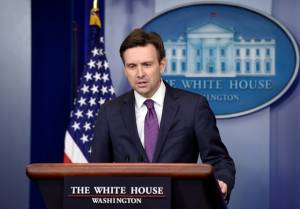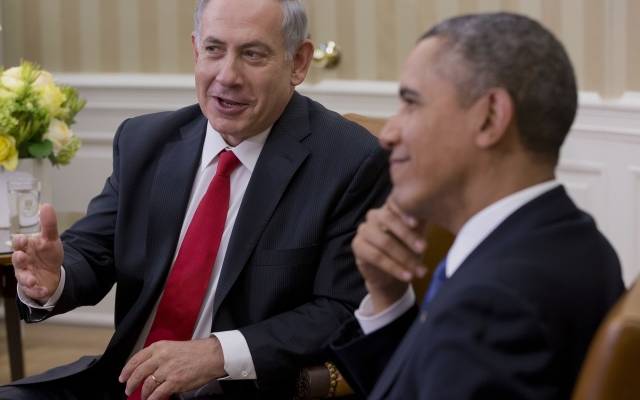Israeli Prime Minister Netanyahu will meet with US President Obama in November to discuss pressing issues, including the Iran nuclear deal, Islamic State terrorism and the Israeli-Palestinian conflict.
US President Barack Obama and Israeli Prime Minister Benjamin Netanyahu will meet at the White House on November 9 to discuss the Iran nuclear deal.
Obama and Netanyahu have publicly disputed the merits of the deal. Israel’s government as well as the Opposition have harshly criticized it, while Obama has fought vigorously to defend it.
White House Press Secretary Josh Earnest said the leaders also would discuss efforts to counter the Islamic State (ISIS) terror group’s activities in the Mideast.
Earnest called the meeting a demonstration “of the deep and enduring bonds between the United States and Israel as well as our unprecedented cooperation to further enhance Israel’s security.”
It will be the first formal meeting between Obama and Netanyahu in months.
Obama pointedly refused to see Netanyahu in March when the Israeli leader appeared before a joint meeting of Congress, during which he voiced passionate opposition to the nuclear deal with Iran. US lawmakers had arranged Netanyahu’s appearance without White House input.

White House Press Secretary Josh Earnest. (AP/Susan Walsh)
The US has committed to provide more than $7.18 billion in security aid to Israel over the next year, and officials have floated the possibility of signing a new 10-year agreement about US-Israeli security cooperation. The Netanyahu government has reportedly reacted tepidly to that proposal out of concern that signing such a deal would suggest Israeli acquiescence to the nuclear accord.
Earnest said that while the Israelis have been reticent of late to discuss the matter, “we would expect in the context of this meeting in November, and others that may be on the agenda for lower-level officials, to begin having those discussions, and we certainly welcome the opportunity to do so.”
Earnest said that the White House meeting also will include a discussion of “Israel’s relations with the Palestinians, the situation in the Gaza Strip and the West Bank, and the need for the genuine advancement of a two-state solution.”
By: AP and United with Israel Staff
